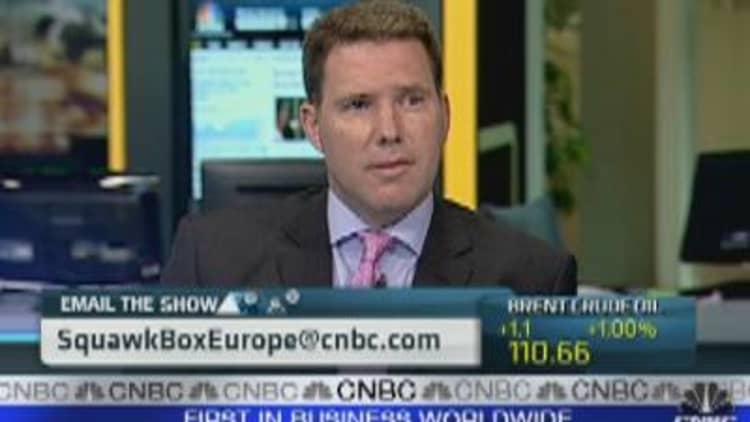The real economy is being harmed by the lack of resolution to the euro zone debt crisis, as consumers put off big ticket purchases while waiting for a decision, a fund manager told CNBC on Monday.
"If every time you switch on your television someone is saying that this is going to be a catastrophe, you are going to hold back until you see what the result is," Stewart Richardson, Partner, RMG Wealth Management, said.
"This whole political impasse, which is torturous, is hurting the real economy."
Over the weekend, the EU heads of states came closer to an agreement on bank recapitalization and on how to leverage bailout fund the European Financial Stability Facility to try to stop bond market contagion.
Markets were volatile last week as they swung between optimism and pessimism about the EU leaders reaching agreement on Sunday. They are now fixated on the new deadline of Wednesday.
Despite the lack of decisions, company earnings for the third quarter have so far performed relatively well, with companies in the S&P 500 on course to record their eighth consecutive quarter of double-digit profit growth.

Richardson believes that a stronger private sector will help drag the euro zone out of the current crisis.
"Within Europe, the public sector seems to be just getting bigger and bigger and the way to get out of this crisis is to get the private sector to be bigger and shrink the public sector over time," said Richardson, whose fund is up by 5 percent this year so far.
German Chancellor Angela Merkel won a key battle over the EFSF with French President Nicolas Sarkozy, who wanted to turn the fund into a bank which could borrow from the European Central Bank.
A "piecemeal" approach to resolving the crisis could end up costing more in the long term, Guntram Wolff, Deputy Director, Bruegel, told CNBC Monday. He added that the more cautious German approach runs the risk of being "piecemeal", and that the sum of 108 billion euros (dollar conversion) marked for bank recapitalization was not big enough if exposure to Italian sovereign bonds was taken into account.
One option on the table is the "first loss insurance" option or "Allianz plan", which would involve the EFSF underwriting some sovereign debt risk in an intervention that would pay the fees for private investors to take out insurance on bonds.
"My fear is that the insurance solution will lead to more ECB intervention," Wolff said.
"The ECB might have to interfere in the secondary bond market much more to preserve financial stability."
European Council President Herman Van Rompuy said after chairing Sunday's talks: "Further work is still needed and that is why we will take the decisions in the follow-up euro zone summit.
"Between now and Wednesday, some members of the European Council will have to convince colleagues that their country is implementing the promised measures fully."
He may have been referring to Italy, the euro zone's third biggest economy, which has caused worries in the markets recently.


